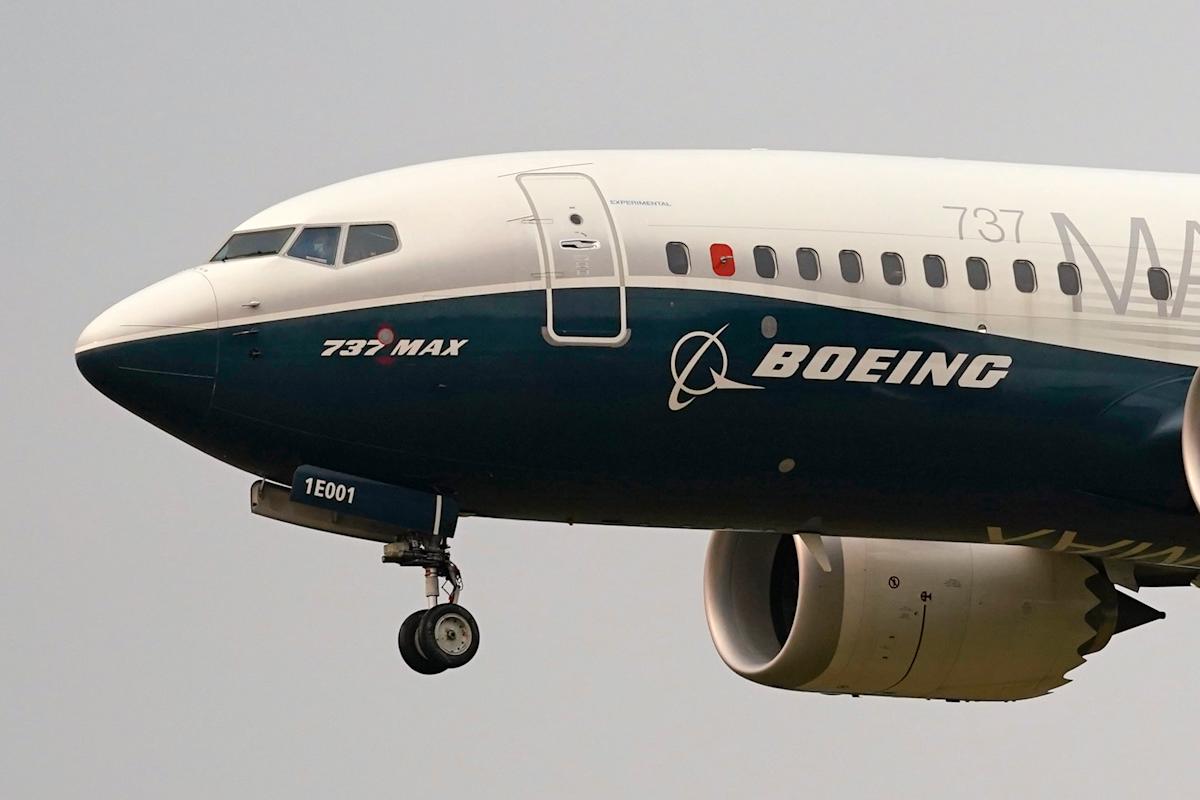
Boeing's Q3 Revenues Exceeded Expectations!


Boeing announced on Wednesday morning that its third-quarter revenue was $23.27 billion. This figure exceeds the Bloomberg consensus estimate of $22.29 billion and is 30% higher than the $21.68 billion recorded in the previous quarter. However, Boeing reported an adjusted loss per share of $7.47; this is above the estimate of $4.92, but the loss was due to a one-time expense related to the 777X program.
Boeing's adjusted free cash flow was negative $238 million, representing a significant improvement compared to the estimated negative $884.1 million. Last year, Boeing reported a massive net loss of $6.17 billion, and free cash flow was also negative $1.34 billion.
Operating cash flow rose to $1.12 billion in the third quarter, while estimates were negative $197 million. Boeing shares gained value in pre-market trading.
The company’s latest widebody aircraft, the 777X, is still behind schedule and has not yet received regulatory approval; due to this delay, Boeing had to incur a $4.9 billion charge. CEO Kelly Ortberg stated, "With a continuous focus on safety and quality, we achieved significant milestones by generating positive free cash flow in this quarter. In October, we reached a joint agreement with the FAA to ramp up 737 production to 42 aircraft per month." He added, "While we are disappointed by the delay in the 777X timeline, the aircraft is performing well in flight tests. We are focused on completing our development programs and stabilizing our operations to restore confidence with all our stakeholders."
Earlier this month, Boeing reported that its third-quarter commercial deliveries reached 160 aircraft; this is an increase from 150 aircraft delivered in the previous quarter and 116 aircraft in the same quarter last year. Of the third-quarter deliveries, 121 were 737 Max, 24 were 787, 9 were 777, and 6 were 767 aircraft.
To boost sales of the 737 Max, the FAA approved Boeing to increase its monthly production rate from 38 to 42 aircraft. Boeing stated in its third-quarter report that 737 Max production stabilized at 38 aircraft per month, but has not yet increased to 42. Ortberg's long-term goal is to ramp up 737 Max production to 47 aircraft per month.
On the other hand, there could be a setback for Boeing's future performance in the defense sector. Boeing defense workers rejected the company’s latest offer at its St. Louis facilities, and the strike has entered its 13th week. The International Association of Machinists and Aerospace Workers (IAM) District 837 stated that Boeing has not met the demands of its approximately 3,200 members on strike.
For future commercial deliveries, Boeing has signed significant contracts with major players such as Norwegian Group, Turkish Airlines, WestJet, and Korean Air.
Boeing's main competitor, Airbus, continues to hold the top position by surpassing Boeing in global deliveries in 2019. The company reaffirmed its forecast to close the year successfully, but engine supply issues pose challenges for the French-based company.
.png)
Yakında Tüm Platformlarda
Sizlere kesintisiz haber ve analizi en hızlı şekilde ulaştırmak için. Yakında tüm platformlarda...





.png)